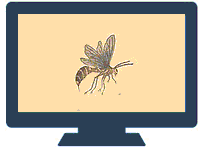Entomology, Department of

Department of Entomology: Distance Master of Science Projects
Date of this Version
2015
Document Type
Project
Citation
Entomology Distance Master’s Project, University of Nebraska-Lincoln, 2015
Abstract
Notes on Decomposition
Decomposition as understood by our ancestors has mystical overtones with foggy roots; the reasons behind the beliefs are not readily understood from a twenty-first-century westerner’s perspective. Gases that built up inside the deceased and oozing fluids from the membranes were explained away as flesh-eating vampires after a night’s feasting (they were bloated and full). Freshly culled meat became a source to maggots and flies as it aged, transferring its “life force” from one being into another (Sachs 2001). A mere century or two ago, Louis Pasteur would be the first westerner to directly link “moulds, mucors and bacteria” to that responsible of decomposition (this was just as the germ theory, that is, organisms smaller than the eye can see exist, was gaining acceptance). Around the same time the acceptance of arthropods playing large roles in decomposition came into scholarly circles but was not accepted among the common person (Sachs 2001). Considering advancements in mathematics and technology are traced back millennia, why did it take us so long to gain further understanding in what was happening with the most basic and routine decompositions? Here, a very large player in flesh decomposition but little understood fly will be investigated to spark interest in those that study the role arthropods play in recycling of organisms, with special interest in recycling of the human body.
. . .
Concluding Remarks
Proper identification of Piophilid species worldwide is an important component to accurate identification of arthropod succession and especially has relevance in medico-legal investigations. With the multiple synonyms employed in naming Piophlilidae members and unrecognized cases of polymorphism, skipper flies are being misidentified more times than necessary. Further research into this forensically important family of flies is needed and an extensive investigation (and revision where necessary) into the conventional naming of each genus, clarifying and removing synonymy where relevant.


Comments
Copyright © 2015 Electra Ragan